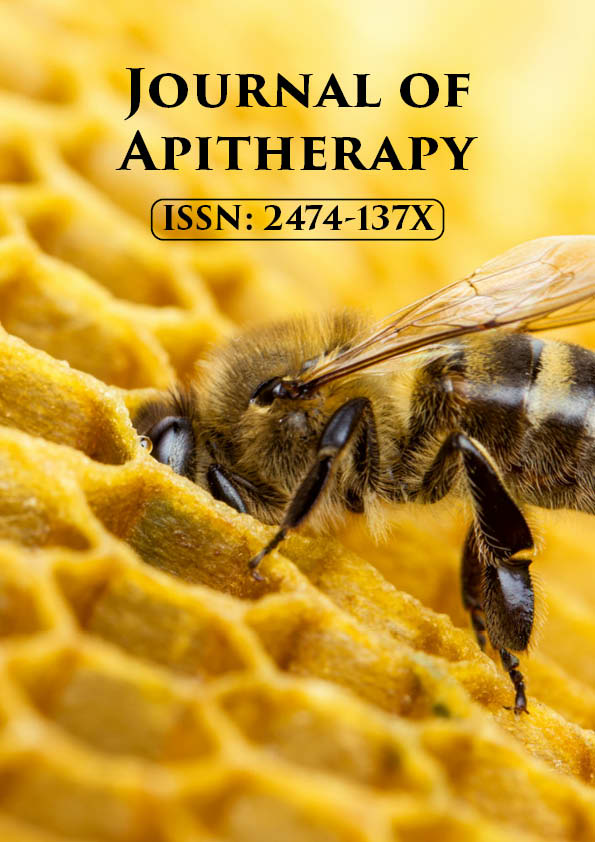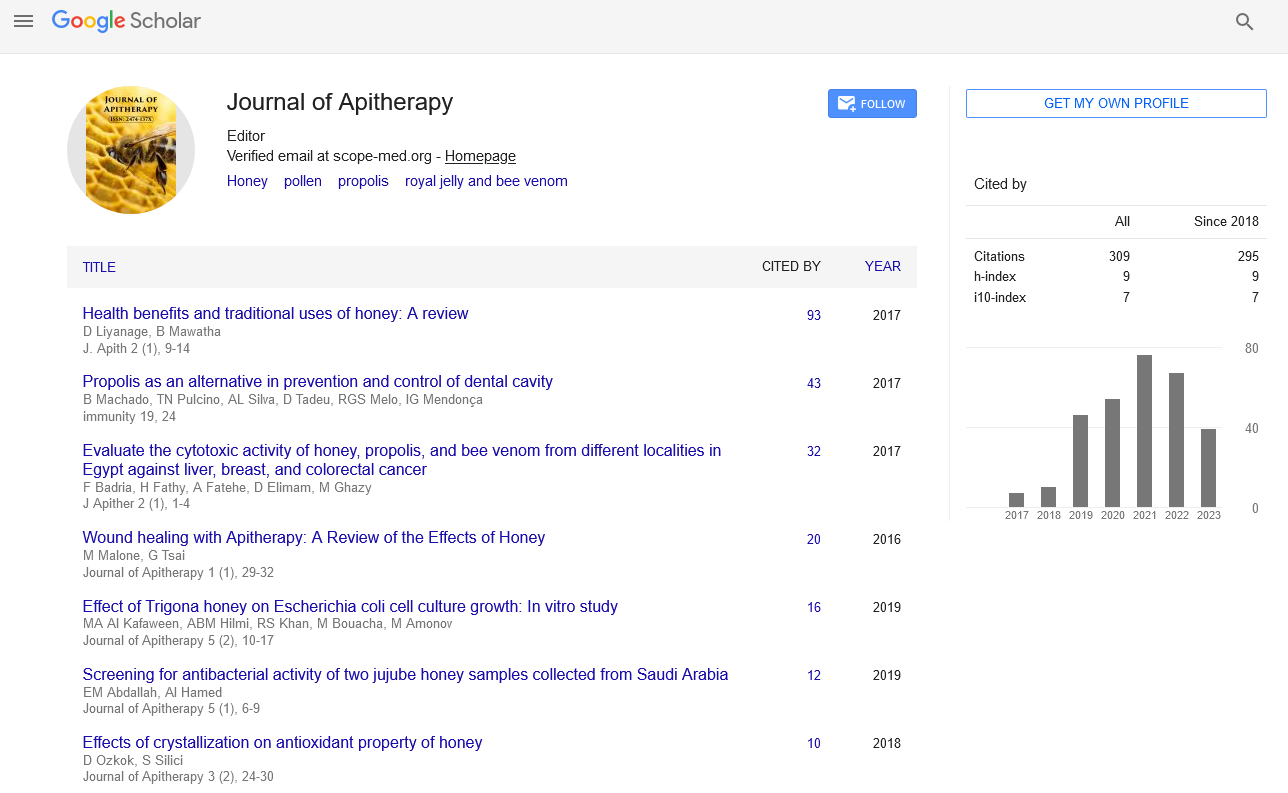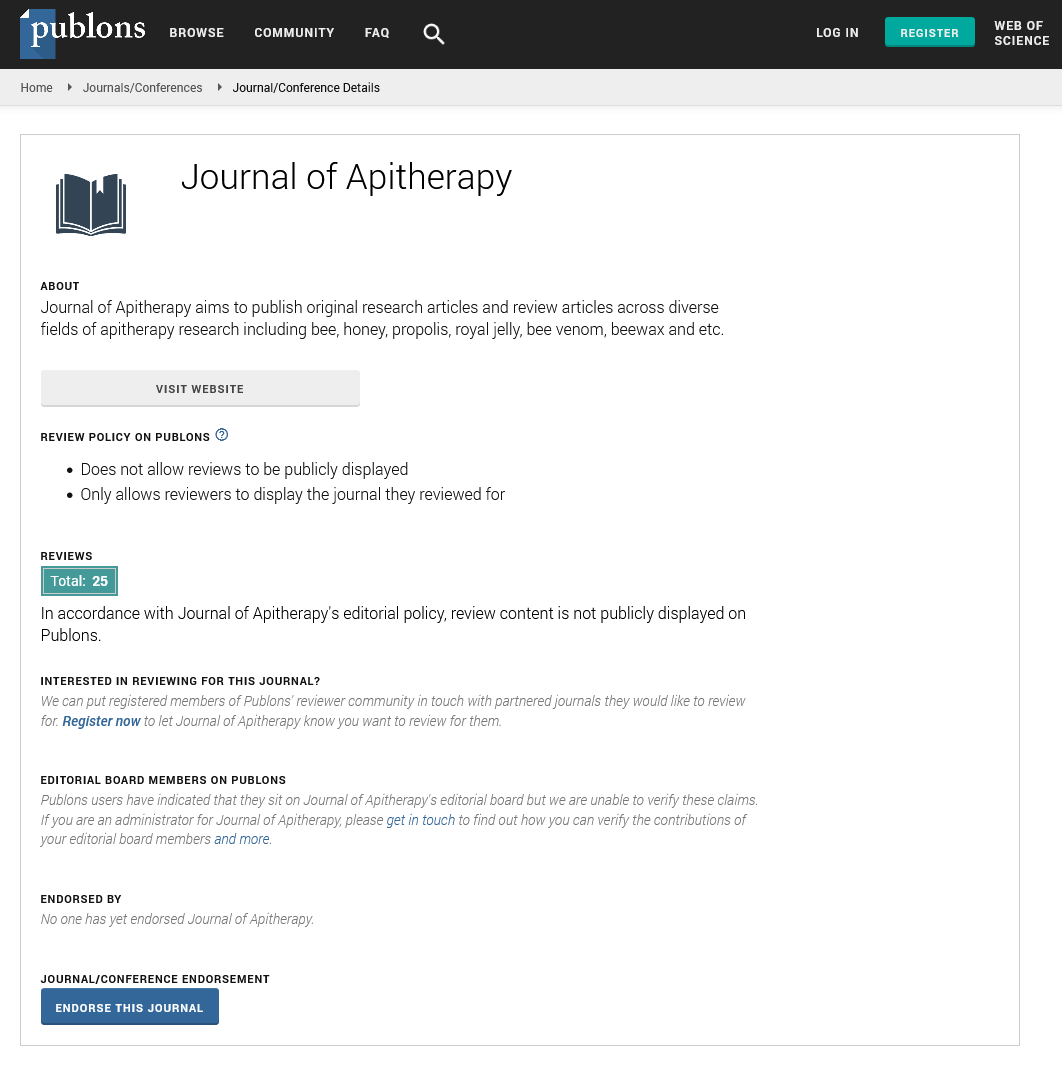Commentary - Journal of Apitherapy (2023)
Antibiotics and Health Hazards of Honey
Anna Mary*Anna Mary, Department of Horticulture, Humboldt University of Berlin, Germany, Email: annamary10@hotmail.com
Received: 03-Jan-2023, Manuscript No. Japitherapy-23-90425; Editor assigned: 05-Jan-2023, Pre QC No. Japitherapy-23-90425(PQ); Reviewed: 19-Jan-2023, QC No. Japitherapy-23-90425; Revised: 27-Jan-2023, Manuscript No. Japitherapy-23-90425(R); Published: 03-Feb-2023
Description
A traditional remedy for burns and other skin problems is honey. According to preliminary research, it helps partial thickness burns heal 4-5 days faster than alternative dressings, and moderate research indicates that using honey to treat post-operative infections results in quicker healing and fewer negative side effects than using antiseptic and gauze. As the quality of the evidence supporting the use of honey in other wound therapies is poor, no solid judgements can be made. The use of honey-based products to treat venous stasis ulcers or ingrown toenails is not supported by scientific evidence. The Food and Drug Administration (FDA) has authorised the use of several medical-grade honey products for healing minor burns and wounds.
Antibiotic properties
Traditional and herbal medicine practitioners have traditionally utilised honey as a topical antibiotic. The Dutch scientist Bernardus Adrianus van Ketel first established the antibacterial properties of honey in 1892. Since then, a great deal of research has demonstrated that honey possesses broad-spectrum antibacterial activity against gram-positive and gram-negative bacteria, however effectiveness varies greatly amongst different honeys. The spread of microorganisms that are resistant to antibiotics in recent decades has reignited interest in studying honey’s antibacterial qualities. Methylglyoxal, hydrogen peroxide, and royalisin (also known as defensin-1) are components of honey that are being investigated in preliminary studies for potential antibiotic usage.
Cough
A Cochrane study revealed no compelling evidence for or against the use of honey for either acute or chronic coughs. The comprehensive review found moderate to low evidence that honey relieves coughing in children better than no treatment, diphenhydramine, and placebo. When it comes to treating children’s coughs, honey doesn’t seem to be any more effective than dextromethorphan. Several studies have endorsed the use of honey to cure kids. The UK Medicines and Healthcare products Regulatory Agency advises against giving children under the age of six over-the-counter cough and cold medications, instead suggesting “a homemade remedy containing honey and lemon is likely to be just as useful and safer to take,” but cautions that honey should not be given to infants due to the risk of food poisoning.The World Health Organization recommends honey as a treatment for coughs and sore throats, including for children, stating that no reason exists to believe it is less effective than a commercial remedy.
Other
Honey has antibacterial properties and can be used topically to treat burns and wounds. Apply a thin layer of honey to the affected area and cover with a bandage. Honey can help improve sleep quality by promoting the release of serotonin, which is converted into melatonin. Honey has been shown to help alleviate symptoms of diarrhea, constipation, and stomach ulcers. Pollen-related seasonal allergies are occasionally treated by consumption, however there is conflicting scientific data to back up this claim. For the most part, honey is thought to be useless in treating allergic conjunctivitis. Fructose makes up the majority of the calories in honey. When combined with a regular diet.
Health hazards
Although honey is generally safe when consumed in proportions found in food, it may have a number of potential negative effects or interactions when consumed in excess, together with certain medical conditions, medications, or other substances. One study found that 10% of children experienced modest responses to excessive consumption, such as anxiety sleeplessness, or hyperactivity. Another study found no difference in anxiety, sleeplessness, or hyperactive symptoms between honey ingestion and placebo. Consuming honey can have negative interactions with a number of health disorders, including diabetes, high blood sugar, and anticoagulants used to stop bleeding. Consuming honey could put those with compromised immune systems at risk of contracting a bacterial or fungal infection.
Copyright: © 2022 The Authors. This is an open access article under the terms of the Creative Commons Attribution Non Commercial Share A like 4.0 (https://creativecommons.org/licenses/by-nc-sa/4.0/). This is an open access article distributed under the terms of the Creative Commons Attribution License, which permits unrestricted use, distribution, and reproduction in any medium, provided the original work is properly cited.







